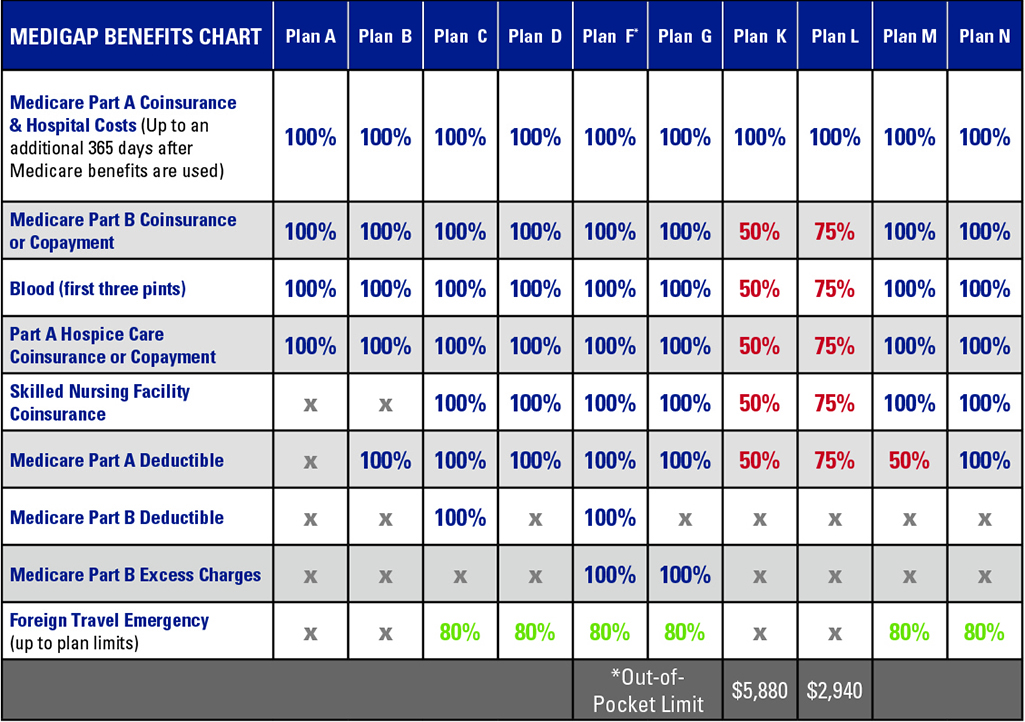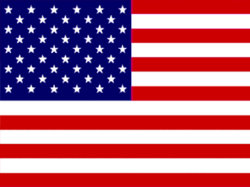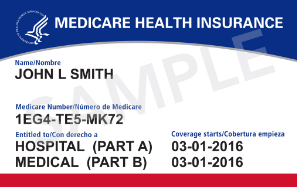Reminder: Beneficiaries newly eligible for Medicare after January 1, 2020 will NOT be able to enroll in Plan F.

Beneficiaries already in Plan F can stay in that plan, and those eligible before that date are free to enroll in Plan F. That said, Plan G premiums are usually low enough that it is a cheaper alternative to Plan F, even after having to satisfy the Part B deductible that isn’t covered.
Glossary of Medicare Supplement Terms
As you compare Medicare Supplement plans using the chart above, it is important to understand the meaning of the benefits that are represented. Here is a brief overview of each category:
The first four items listed with an asterisk are the basic components of a Medicare Supplement policy. As you can see, all plans include these four components. Plan A includes ONLY these four.
*Medicare Part A coinsurance: Covers the very expensive daily hospital copays you begin accruing after your 60th day in the hospital and includes an additional 365 days of hospital care after Medicare benefits are exhausted.
*Medicare Part B coinsurance or copayment: Medicare only covers 80% of your Part B outpatient expenses. Your supplement would pay the other 20% for you. This can be especially important if you encounter common, but expensive, procedures like cancer treatments or dialysis.
*Blood (First three pints): This benefit pays for the first three pints of blood in a blood transfusion since Medicare only pays for the fourth pint and beyond.
*Part A hospice care coinsurance or copayment: Supplements pay for the parts of hospice that Medicare does not.
Skilled nursing facility coinsurance – Medicare only pays for the first 20 days of care in a skilled nursing facility (SNF) out of the 100 that are allowed. A policy with SNF coverage will pay for the other 80 days.
Medicare Part A deductible – the Part A deductible is a four-figure expense and, unfortunately, you can be required to pay this more than once per year if, for example, you have two inpatient hospital stays more than 60 days apart.
Medicare Part B deductible – Unlike the Part A deductible, the Part B deductible is an annual deductible. You will pay the Part B deductible once per year for services such as doctor’s visits, lab work, or physical therapy unless your Medicare Supplement provides this benefit.
Medicare Part B excess charges – Medicare providers can either accept “assignment” – Medicare’s assigned rates for each service – or, if they choose, they can charge you up to 115% of that assigned rate. That extra 15% is what is known as an “excess” charge. The excess can be expensive for certain procedures like diagnostic imaging or surgery.
Foreign travel emergency – Medicare does not offer coverage outside the country. Some Medicare Supplements include a foreign travel benefit. It will pay 80% of your expenses up to $50,000, after a small deductible, if you need to have a Medicare-approved procedure while overseas.


